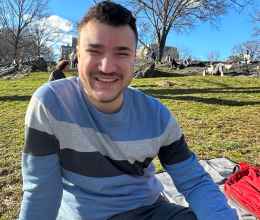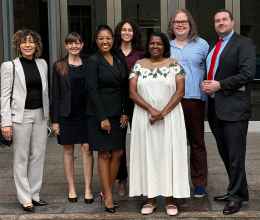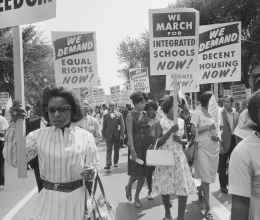
Maria Soto was born in 1971 in the Los Angeles County Hospital in California. She has her original birth certificate to prove it. She carefully guards the small, deeply creased and wrinkled document with a dozen other important papers at her home in southern Oregon.
And yet the government refuses to give her a passport, telling her that her birth certificate and other documentation she has submitted is “insufficient.”
We are suing on Maria’s behalf because the government unjustly denied her a U.S. passport. Today we filed a federal lawsuit against the U.S. Department of State, demanding that she be provided her passport just as any other citizen.
Maria’s parents were migrant workers. They took her to Mexico as a baby to be cared for by her grandparents. Growing up, she always knew she was a United States citizen. She regularly returned to the United States to visit family, showing her original birth certificate each time she crossed the border.
When Maria turned 18, she returned to the United States and settled in southern Oregon. She soon sponsored her husband for his green card—an immigration process that required that she prove her citizenship to the federal government. She would prove her citizenship to the federal government two more times, submitting immigration petitions for her mother and her brother.
In 2018, Maria and her husband hoped to travel to Peru for vacation, so she applied for her passport like anyone would. She sent in her original birth certificate, along with a certified copy issued by the State of California, and other documentation, including her driver’s license, social security card, a letter from her school in Mexico, and medical records.
In response, the government denied her application, sending her a letter telling her that she had submitted insufficient evidence to prove her U.S. citizenship.
Cases like Maria’s appear to be occurring more frequently. Last summer, the Trump administration created a “Denaturalization Task Force” to attempt to strip some naturalized citizens of their citizenship, and the Washington Post reported on a surge of passport denials for Latino Americans who were born along the border. And just last week, President Trump again told reporters he was investigating whether he could issue an Executive Order ending birthright citizenship as guaranteed by the 14th Amendment to the United States Constitution. ( Spoiler alert: he can’t.)
Across America, Latinx communities are facing unprecedented levels of harassment and discrimination. Behind the racist rhetoric coming from the White House is the insidious message that people like Maria—people of color, people who speak a second language, people who come from immigrant families or communities—are not equals in our country or are somehow less American.
Maria is a citizen, but in the eyes of the Trump administration, her birth certificate is not enough. Her social security card is not enough. The fact that she has already proven her citizenship to the federal government in immigration applications—not once, not twice but three times—is not enough.
They are wrong. Maria is a citizen and is owed her passport, plain and simple, and we are suing to make sure she receives it.







